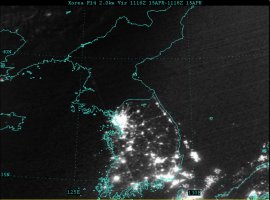Pay No Attention to That Man Behind the Curtain
Another look at Kim Jong-Il’s possible situation in North Korea from The American Thinker.
Consider the basic nature of the North Korean state: it is a criminal enterprise. It is no secret that illegal drugs, counterfeiting, and illicit trade in weapons provided most of the foreign currency available to the regime. The fruits of these crimes were distributed quite carefully by Kim to those whose support he needed in order to hold onto power, mostly military figures. Just like Al Capone and the fictional Tony Soprano.
While ordinary North Koreans scraped the bark off trees to ease their pre-death suffering, the inner circle feasted on delicacies and consumed large amounts of expensive cognac, boons granted them directly and personally by Kim, sometimes at bacchanals featuring comely young women called to serve in multiple ways, and lasting for days.
Such symbolic affirmation of both their utter dependence on the leader himself, and the availability of the “best the world has to offer” in the way of pleasures - if only they maintain loyalty - is a powerful mechanism for cementing support. Adherence to the leader brings all things good, while breaking away is uncertain, and unlikely to bring about a personal improvement even if it succeeds.
However, there is discontent. The Little Dictator’s counterfeiting business is hurting. A year ago the U.S. clamped down on the Banco Delta of Macau, the seat of his corrupt financial activities. Kim Jong-Il doesn’t have the means to pay for his extravagant living and therefore his largesse to his followers dwindles.
And among the civilian population of North Korea, it is becoming well known that their southern cousins are living large:
During the worst of the famine, substantial though not overwhelming numbers of North Koreans snuck into China, braving the waters of the Yalu River or somehow finding a boat or bridge crossing. Once outside the hermetic information bubble of North Korea, they discovered not just a booming China, but also evidence of an even richer and more advanced South Korea. The South Koreans are, after all, major investors in China, and producers of some of the most sought-after consumer goods there, such as Samsung televisions (regarded as even more prestigious than Sony in China). No doubt tens of thousands of them saw pictures of life in South Korea, with its automobile traffic and obvious affluence beyond the dreams of any North Korean. Imagine the shock of the feared (and much richer) Chinese craving Hyundai cars and Daewoo DVD players.
As the famine eased, no doubt large numbers of North Koreans returned home to be with family and friends, and to avoid capture and deportation by the Chinese (with deadly consequences upon arrival back home). Ensconced in their own home villages, tongues must have wagged about what they saw and what they heard. In a controlled media environment like the North, such covert oral communication becomes a vital mass medium. Because North Korea’s military is so large relative to its population, there is no way that members of the military did not hear and pass along these stories.
Furthermore, Lil Kim shot himself in the foot by exacerbating his nation's food problems:
Shortly after the move against counterfeiting last year, North Korea kicked out the United Nations World Food Program, perhaps fearful of the monitoring activities food distribution permitted, or perhaps simply anxious to defiantly swagger before American imperialists and their lackeys.
But as a result, the food situation in North Korea became even grimmer. Reports circulated that even military units could not obtain adequate supplies, that resources were concentrated on only the Praetorian Guard units and those responsible for nuclear weapons and missile development.
Under these circumstances, with even army units hungry, it is easy to see that the resources being devoted to nukes and missiles would generate some opposition, however quiet it would have to remain. Tyrants always fear their bodyguards, and when those bodyguards come from the ranks of an unhappy military, there is ground for serious concern. To put it bluntly, Kim may have felt cornered, forced to demonstrate to his internal foes that his nuclear weapons and missiles worked, and that they were capable of world historical changes.

Above is a satellite photo of North and South Korea at night. Look at how dark North Korea is. Looks like Lil Kim forgot to pay the electric bill.
Some interesting observations indicate a lessening of Kim Jong-Il's popularity and power:
In the past two years, there have been fascinating if inconclusive signals that something was going on in North Korea with regard to Kim’s hold on power. Disappearing portraits in official places and disappearing lapel badges on officials, seeing him replaced by images of his late father, the founder of the dynasty. Many in the senior military owe their positions to the father, not the son, and consider themselves the guardians of Kim Il-sung’s legacy. His father fought the Japanese. The younger Kim grew up in luxury.
So what does this picture look like? Growing discontent among a hungry people who see the affluence and lifestyle of their neighbors down south. Inability to feed one’s military. No more money to throw around. And more screws tightening from this recent UN Resolution.
I think it’s time to foment a rebellion in North Korea. I wouldn’t be surprised if we had CIA operatives there working it. Nothing would give me more satisfaction than to see Kim Jong-Il strung up by his own people who are free at last to join with the prosperity of South Korea.















<< Home